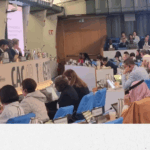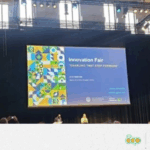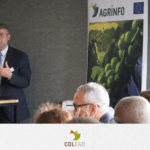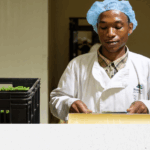- 10/06/2024
- Posted by: Sandra Borma
- Category: News
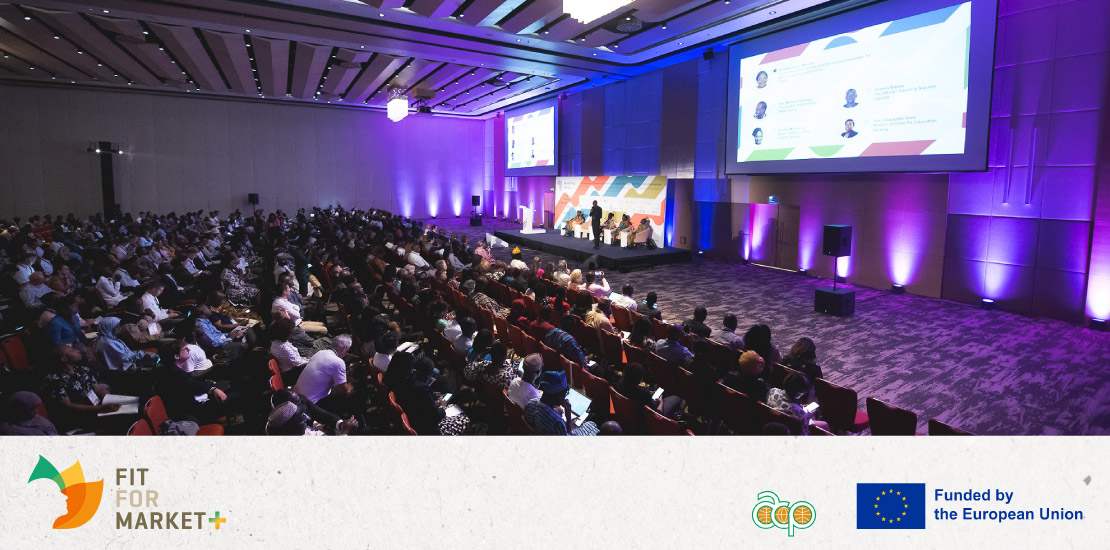
eLearning Africa in Kigali: an edition rich in opportunities for collaboration to continuously improve digital learning
Launched in 2005, eLearning Africa takes place each year in a different country on the African continent. The event welcomes visitors and speakers from over 100 countries around the world, more than 75% of whom are from Africa. Topics covered include digital learning, training and skills development. For several years now, COLEAD has participated with a dual objective: to present and share its progress in e-learning in the agri-food sector in the context of the implementation of programmes, and to meet the players in the sector to forge targeted partnerships.
The 17th edition of Elearning Africa was held in Kigali from 29 to 31 May. Plenary sessions, conferences, group discussions, presentations and demonstrations, and knowledge-sharing workshops took place over three days of intense activity. COLEAD was represented by its Training Department (David Sodade and Géraud Gnanga). This participation enabled to identify new trends and opportunities in the field of digital learning, which will allow to improve the COLEAD e-learning platform, currently mainly being developed and promoted under the Fit For Market Plus (FFM+) programme. It was also an opportunity to meet new potential and existing partners (universities, service providers, donors) to explore the possibilities of collaboration on the issues raised in the requests for support from FFM+ partner beneficiaries.
During the mission, the team also met specifically with programme partner beneficiaries based in Rwanda, as well as with the European Union Delegation in Kigali. This was an opportunity to facilitate multi-stakeholder discussions and question-and-answer sessions on the current challenges faced by Rwandan horticultural associations/enterprises and to present the latest progress of the FFM+ and Agrinfo programmes.
This activity is supported by the Fit For Market Plus (FFM+) programme, implemented by COLEAD within the Framework of Development Cooperation between the Organisation of African, Caribbean and Pacific States (OACPS) and the European Union. This publication receives financial support from the European Union and the OACPS. The content of this publication is the sole responsibility of COLEAD and can in no way be taken to reflect the views of the European Union or the OACPS.

